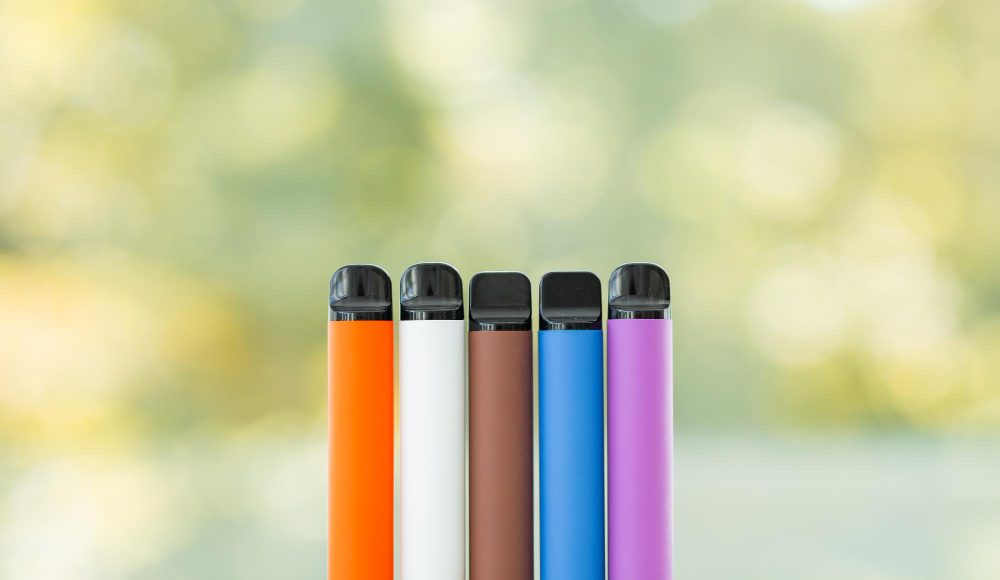In fact, a recent survey conducted by Vape Superstore with the aim of examining the broader implications of this ban and other proposed vaping restrictions, among a sample of 1,136 vapers, found that 66% of the respondents named disposables as their primary device. Anticipating the ban, 25.2% of respondents stated they would stockpile disposable vapes beforehand. On the otherhand, the ban may drive some former smokers back to cigarettes, with 14% of respondents saying they would resume smoking once disposable vapes become unavailable. While 6.9% indicated they would turn to illicit souces to continue purchasing disposables.
Beyond the disposables’ ban, other proposed restrictions, such as a ban on sweet-flavoured e-liquids, may have further negative impacts. Nearly 30% of the surveyed vapers reported they would consider returning to smoking if sweet flavours were restricted, and 15.1% said they would seek out black market sources to obtain their preferred flavours.
Every study conducted on the topic has indicated that nothing good will come out of the ban
In line with the above, secondary findings from a recent international study looking at the relationship between vaping and respiratory health, (therefore completely unrelated to the UK ban) reported similar findings. The research team found that among approximately 750 adult participants, most preferred disposable vapes with fruity flavours. While a study from Bristol University reiterated that flavour bans risk pushing adults back to smoking, undermining public health goals.
Similarly, an impact assessment from the UK’s Department of Health, warned that the Tobacco and Vapes Bill, could lead to more young people trying cigarettes, a trend already observed following similar US policies, where restricted vape flavours led to increased cigarette sales. The primary aim of the UK ban is of course to curb underage vaping, following concerns that disposable vapes have contributed to rising vaping rates among minors. However, the growing concern about how the ban will affect adult vapers, who often rely on disposable vapes as a smoking cessation tool, cannot be denied.
Reports have suggested that the government aims to prevent former smokers from reverting to cigarettes by promoting reusable vape options. Last year, it rolled out the “Swap to Stop” initiative, encouraging smokers to transition to safer nicotine alternatives. Supporting this approach, the latest Cochrane review highlights vaping as an effective nicotine replacement, credited with reducing the number of smokers in the UK by 50,000–70,000 per year.
Industry experts and stakeholders, including Marcus Saxton of the Independent British Vape Trade Association (IBVTA) and Eve Peters of Elf Bar, caution against over-regulation. They argue that accessible vape options are crucial for smoking cessation (Sweden becoming smoke-free is a perfect example of this) and suggest that further restrictions could harm public perception and smoking reduction efforts. With an estimated one-third of current vapers likely to revert to smoking if these measures proceed, stakeholders urge a more balanced approach that considers both youth protection and adult smokers’ needs for effective alternatives.
Vapers tend to be more health concious than smokers – hence why they vape
A recent study which compared how people rate their own health when they exclusively use e-cigarettes, as opposed to when they exclusively smoke traditional cigarettes, confirmed that vapers feel healthier than smokers. Using data from England’s 2019 Health Survey, the study focused on 274 e-cigarette users and 1,017 cigarette smokers, excluding those who used both products or other forms of tobacco. Participants rated their general health as “very good,” “good,” “fair,” “bad,” or “very bad.” These were grouped into “Good Health” (for “very good” and “good”) and “Poor Health” (for the other three).
After accounting for various factors like age, gender, and lifestyle habits, researchers found that vapers were 59% more likely to report “Good Health” than cigarette smokers. Further testing confirmed this trend across all levels of health self-ratings, suggesting that people who exclusively use e-cigarettes feel healthier than those who smoke.
On a different but similar note, another survey by Vape Superstore of 2,660 e-cigarette users challenged the perception that vapers are careless about their health, revealing their approaches to wellness in areas such as alcohol consumption, fitness, dietary supplements, and sleep. With the regards to alcohol consumption, the results revealed that 21% of vapers are sober, and 22% drink alcohol less than once a month, while only 2% drink daily.
While taking into account the other factors, the survey concluded that many vapers make health-conscious choices, reinforcing the NHS position that e-cigarettes are an effective tool for smoking cessation. In fact, this health-focused behavior aligns with efforts to transition away from traditional cigarette use.
A call for balanced regulations
In light of all the above, as the UK moves toward implementing these changes, authorities are being urged to balance public health goals with the needs of adult vapers. Endorsing tobacco harm reduction strategies by allowing access to different kinds of vaping products, especially those preferred by consumers, is crucial for reducing smoking-related deaths and diseases. These evidence-based approaches empower individuals to quit or reduce harm, delivering significant public health benefits while respecting personal choice and autonomy.












